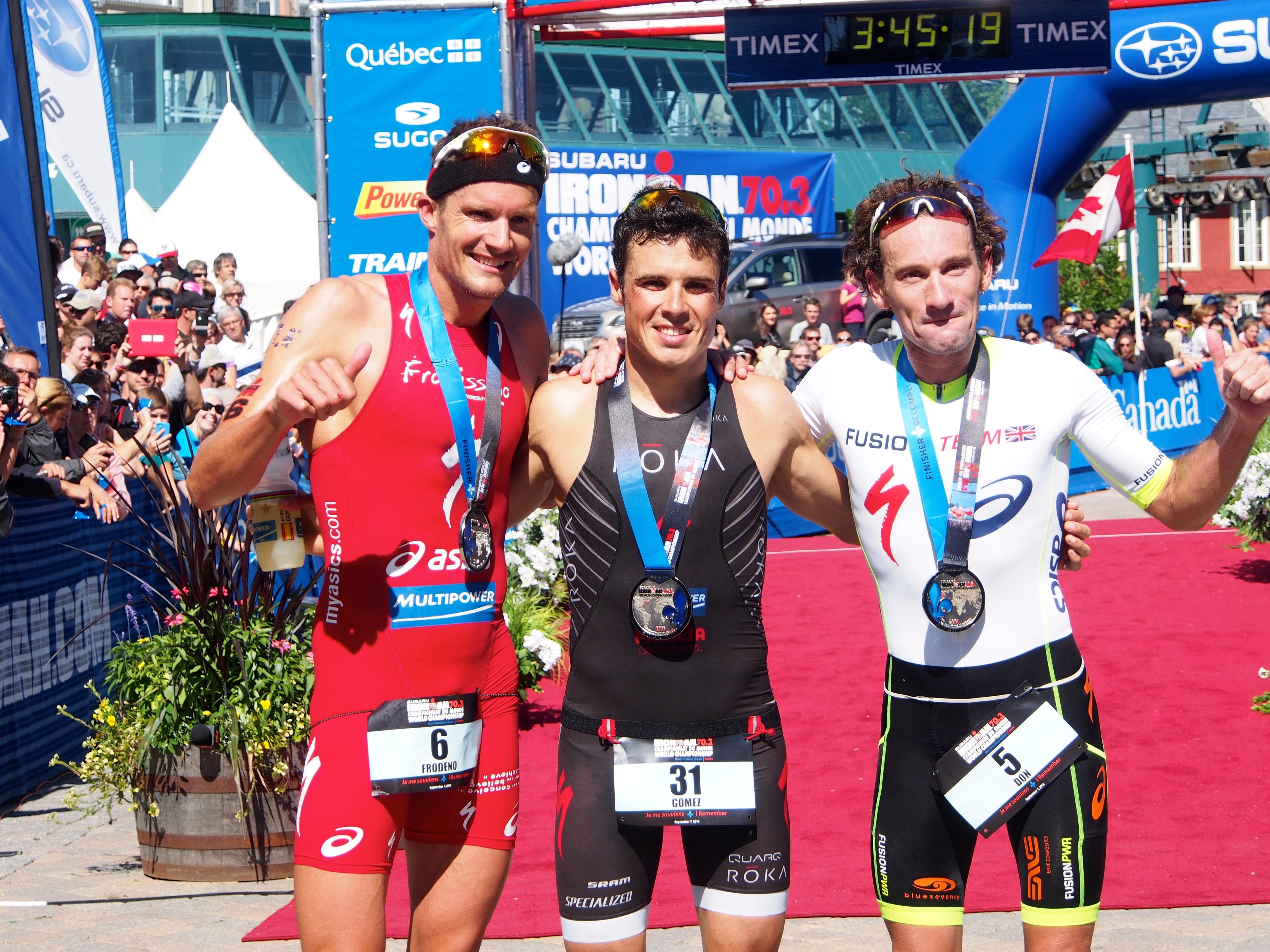Opinion: The Future of Long Distance Racing

Just under a year ago Mont-Tremblant, Quebec served as the host of the first Ironman world championship to be held outside the United States. The Ironman 70.3 World Championship served as a harbinger for the future of long distance racing, and much of that is because of the man we’re profiling in our September issue of Triathlon Magazine Canada, Jan Frodeno, the winner, Javier Gomez, and the bronze medalist, Tim Don.
Frodeno won the Olympic Games triathlon in 2008 in a sprint over Canadian Simon Whitfield and New Zealand’s Bevan Docherty. After competing at the 2012 games in London Frodeno began his long distance career. He appeared to be on track for a big day at the 2013 70.3 worlds, running alongside Craig Alexander and Terenzo Bozzone, when he was forced to pull out of the race with Achilles tendon issues.
In 2014 Frodeno once again took to 70.3 racing with gusto. A number of early season wins set him up for his first full-distance race at the Ironman European Championship in Frankfurt, Germany. In that race he was first out of the water, waited for the lead cycling group to catch up, and was riding with the leaders when he got the first of his three flats. Adding to the challenge of his Ironman debut, he found himself cramping through the marathon.
Which set things up for Mont-Tremblant. Frodeno figured he had two main rivals to worry about there: defending champ Sebastian Kienle and ITU world champ Javier Gomez. On race day he and Gomez pushed through the swim to try and open up as much of a gap as possible on Kienle. Once on the bike Frodeno made sure to keep the pace up so that Kienle (and, it turned out, Canadian Lionel Sanders) would have to work really hard to catch up. Neither did. While Sanders was able to run his way to fourth, Kienle was never a factor in the race.
In Kona, though, the race strategy changed dramatically. For the first time in years the leaders out of the swim rode relatively conservatively through the first 40 km of the bike, which allowed Kienle to bridge up to the group and set himself up for the win.
Frodeno threw all caution out the window in Frankfurt earlier this year and blasted through the swim, set a new bike course record on the bike, then ran well in scorching heat to set a new course record and easily take the title from Kienle, who was a distant second. To me it was a clear signal of what we can expect in Kona this year. When you add Lionel Sanders to the “incredible on dry land but struggles in the water” category, there’s going to be lots of reason for the swim leaders to keep things moving through the early portions of the bike.
And that situation is only more likely to continue over the next few years. Former world champion Tim Don (UK) won his inaugural Ironman race in Mallorca last year. One has to imagine that Gomez will move up to long distance racing after the Rio Olympics, which is a frightening thought for the rest of the men competing. The Spaniard is a low-29 runner off the bike when he needs to be. It’s frightening to think what he’s capable of over a half or full-marathon in the future when he puts in some more distance training. (Gomez “struggled” over the last 5 km of the run in Tremblant and Frodeno gained some ground, but he was able to hang on for the win.)
Can you imagine what Alistair Brownlee is going to add to this mix if he decides he wants to become a long-distance racer, too? We’re now talking about a bunch of guys who can swim and run amongst the fastest in the sport and can more than handle themselves on the bike. “It’s all about the run” is the way you’ll hear lots of people talk about long distance racing now. We’re gearing up for a time when it will all about the swim, bike and run. A weakness in any of those is going to make it very hard for you to win in Kona.
We’re going to see exactly the same thing happen in the women’s fields, too. Former ITU Olympic distance U23 world champ and Olympian Daniela Ryf couldn’t hang on through the marathon to hold off Mirinda Carfrae last year, but you’d be nuts to bet against her either in Zell or Kona this year.
So let the games begin. Long distance racing is in the midst of an exciting change thanks to a bunch of Olympic athletes who are changing the face of the sport.
